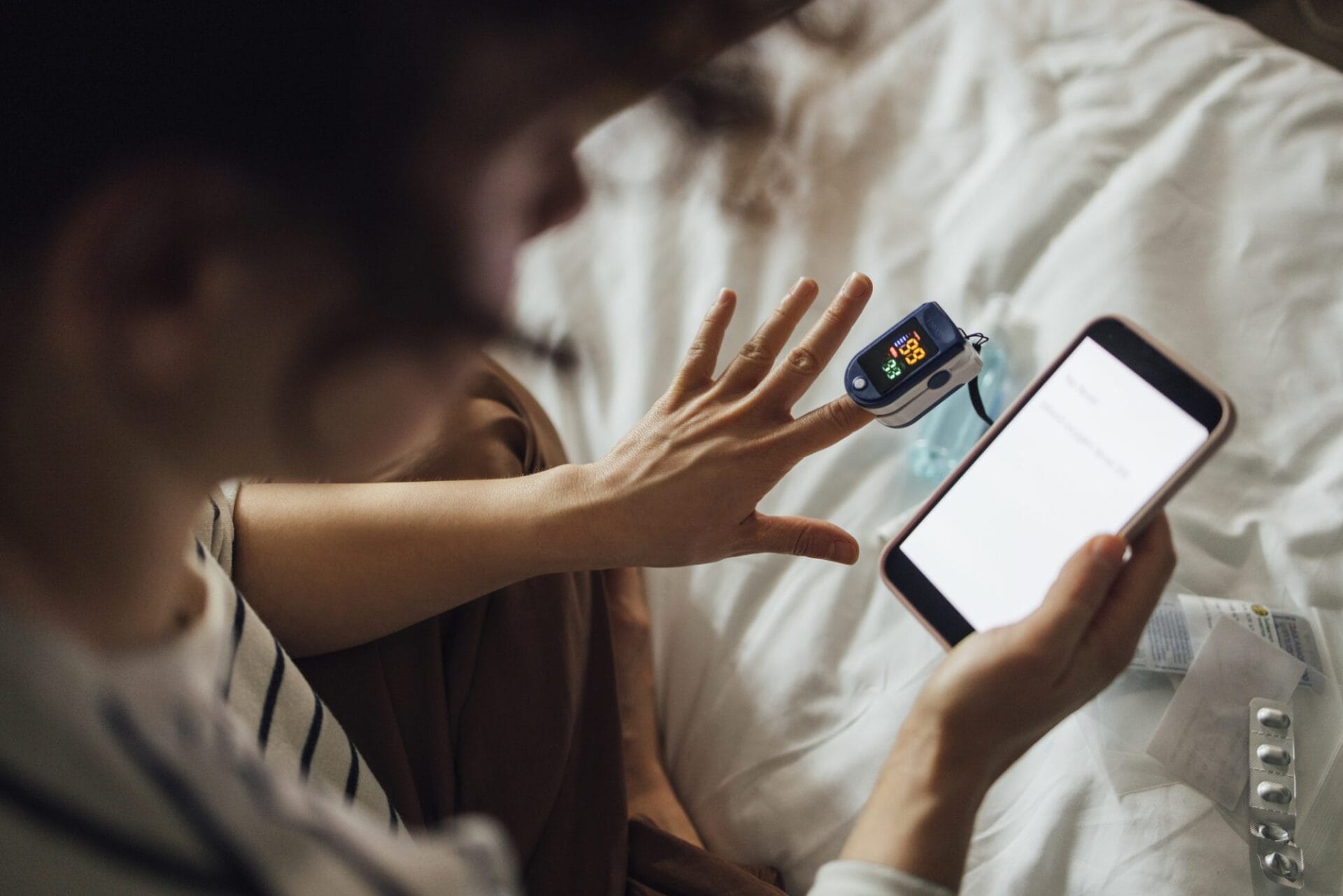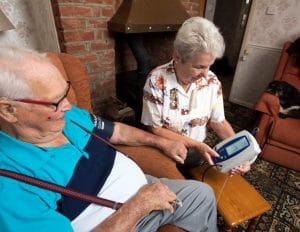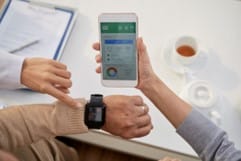Engagement - News and Updates
Remote Monitoring Engagement
Remote Monitoring Online Survey
In August, the ICB Engagement Team supported colleagues in developing an online survey around the use of digital technology and remote monitoring.
The use of digital technologies is increasingly playing a part in our lives, including in healthcare. The concept of remote monitoring has been around for some time and involves use of devices to enable people to receive, record and relay information about their health and wellbeing in real time.



What is remote monitoring?
Remote Monitoring is the use of monitoring devices to enable people to receive, record and relay information about their health and wellbeing in real time. It can be used to support health and care teams in treatment and care planning.
How does it work?
Remote monitoring could include being given a piece of medical equipment and being asked to use it and record your own results over an agreed period of time, for example by taking your blood pressure twice a day, weighing yourself each morning, using a pulse oximeter to monitor your oxygen saturation levels, using devices to monitor your glucose levels. It could also include answering a range of questions online about how you feel and monitoring your symptoms. This isn’t an exhaustive list and you may be aware of other examples. Through remote monitoring the results are then reviewed by a healthcare professional, usually electronically.
Why are Somerset Integrated Care Board (ICB) interested in remote monitoring?
Somerset ICB is looking at the use of remote monitoring principles and technology in the provision of health and care services in Somerset, as well as looking to understand how others are using it nationally. The online survey is the first step in in understanding people & communities' experiences of using this and their views on using it more in the future.
What was the aim of the survey?
We designed the online survey to better understand people & communities' experiences of using remote monitoring and their thoughts about using it in the future. We wanted to hear all feedback including any concerns or ideas for opportunities to use the technology.
The online survey findings are going to shape our thinking and approach. It is just the initial step in our engagement with people & communities around digital technologies. We aim to use other engagement methods to capture everyone’s thoughts and feedback throughout the development of this work.
How will my feedback be used?
The information you provide will be used as part of discussions helping us to develop our views on the use of this type of technology and may be used to help us develop a strategy for using remote monitoring in health care services in Somerset. We will also share the feedback with teams already using these types of technologies to help improve and further develop the services they offer. All information will be anonymous.

Online Survey Findings - You Said, We Did
Online survey findings - You Said, We Did
The online survey has now closed and we have begun the process of analysing all feedback.
We would like to thank all contributors who shared their experiences, thoughts and views - the findings are both interesting and incredibly useful in shaping our approach and next steps.
Some initial themes have emerged from the findings:
1. Those who have used remote monitoring have found it beneficial
2. People are careful about burdening their carers
3. Queries were raised around who reviews the information recorded
4. A general positive response to expanding the use of technologies for remote monitoring
Next steps
We will continue to analyse and consider the survey findings, which are already helping us to consider our next steps. We aim to share a more detailed update with you shortly.


